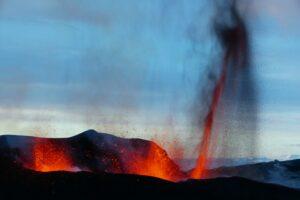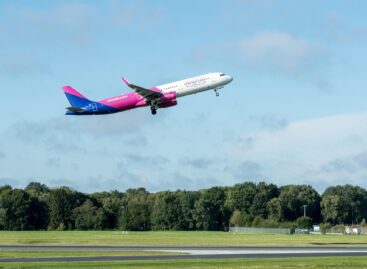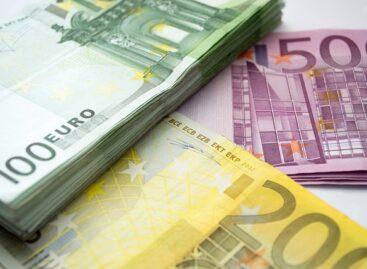Could a volcano paralyze European tourism today?
Fifteen years after the 2010 eruption of the Icelandic volcano Eyjafjallajökull, which paralyzed European air travel for eight days, experts agree that if something similar were to happen today, the effects would be far less severe. Since the air traffic chaos caused by the volcanic ash cloud, safety protocols, forecasting systems and the authorities’ ability to respond have all changed radically, the Money Center points out.
A predictable “black swan”
 Eyjafjallajökull erupted on April 14, 2010, and its explosive ash plume closed around 300 airports, canceled more than 100,000 flights and stranded around 10 million passengers worldwide. The economic losses for airlines exceeded 1.1 billion pounds. Jonathan Nicholson, a spokesman for the British Civil Aviation Authority (CAA), later said that although many people considered what happened to be a “black swan event”, it was actually predictable, as Icelandic volcanoes are historically active.
Eyjafjallajökull erupted on April 14, 2010, and its explosive ash plume closed around 300 airports, canceled more than 100,000 flights and stranded around 10 million passengers worldwide. The economic losses for airlines exceeded 1.1 billion pounds. Jonathan Nicholson, a spokesman for the British Civil Aviation Authority (CAA), later said that although many people considered what happened to be a “black swan event”, it was actually predictable, as Icelandic volcanoes are historically active.
The problem was partly caused by the regulations at the time: flying in any concentration of ash was prohibited. Since ash can seriously damage aircraft jet engines, the authorities ordered a complete airspace closure for safety reasons.
The solution: research, technology, new rules
However, the 2010 crisis triggered a wave of rapid development. The engine manufacturer Rolls-Royce took a pioneering role in testing to determine the ash concentration at which it was still safe to fly. As a result, on April 20, 2010, the aviation authorities agreed that flying was considered safe if the ash level was below 2 mg/m³. This has allowed for a gradual reopening of airspace – and a paradigm shift in regulation.
Three-tier classification and individual decisions
Volcanic ash pollution is now divided into three levels – low, medium and high – and airlines can decide whether to fly in a given area based on their own risk assessment. This decision is based on specifications from engine manufacturers and forecasts from the Met Office.
“If something like this were to happen now, airlines would be able to make their own decisions based on their own safety protocols whether to fly or not,” Nicholson said. This would significantly reduce the chance of widespread disruptions like the one experienced earlier.
Related news
Bratislava bans beer bikes from April 1, alcohol ban also expanded
🎧 Hallgasd a cikket: Lejátszás Szünet Folytatás Leállítás Nyelv: Auto…
Read more >Wizz Air increases flights to Egypt to help passengers affected by Middle East airspace closures
🎧 Hallgasd a cikket: Lejátszás Szünet Folytatás Leállítás Nyelv: Auto…
Read more >MBH quick analysis: Tourism will continue to soar this year
🎧 Hallgasd a cikket: Lejátszás Szünet Folytatás Leállítás Nyelv: Auto…
Read more >Related news
KSH: retail turnover in January exceeded the same period of the previous year by 3.5 percent and the previous month by 0.5 percent
🎧 Hallgasd a cikket: Lejátszás Szünet Folytatás Leállítás Nyelv: Auto…
Read more >World of spirits 2026
🎧 Hallgasd a cikket: Lejátszás Szünet Folytatás Leállítás Nyelv: Auto…
Read more >A magyar csapat március 15-én lép színpadra a Bocuse d’Or Európai Válogatóján
🎧 Hallgasd a cikket: Lejátszás Szünet Folytatás Leállítás Nyelv: Auto…
Read more >








